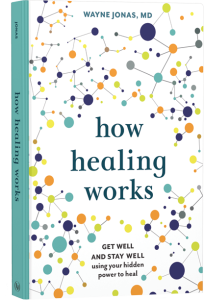I’ve come to recognize the look of skepticism from new patients. Should they trust me? Will I listen? Will I be a partner to them? I don’t take it personally. I’ve been a patient, too, and unfortunately, understand the situation all too well. You wait for what feels like an eternity for an appointment. Then suddenly the buzzer goes off and you have 15 minutes to make your case for improving your health.
It can be intimidating, uncomfortable, and frustrating — but it doesn’t have to be.
As a family physician and researcher, I have worked for years to understand and help improve the doctor-patient relationship. Sometimes, just knowing how to talk with your doctor can make all the difference. Consider these four tips to make the most out of your next appointment.
1. Prepare for your visit
The way doctors were trained falls short of understanding what is really affecting your health and well-being. With this training, your doctor is looking for you to share a medical complaint. However, to make an effective assessment, your doctor needs to get to know you and not just your symptoms. This can be the most intimidating part of the visit. It puts you on the spot to make an “opening statement” about everything that is going on with your life.
I tell my patients to prepare for this opportunity before their visit. Write down not just what you’re feeling, but what it’s keeping you from doing well. Think about why you want to feel better. What goals do you have that better health will help you accomplish?
2. Know what your Doctor is listening for
It’s important to communicate what matters to you, not just what is the matter with you. Talk about your health in ways that your doctor has been trained to listen for—describe your symptoms in detail. What have you noticed? When and how often does it happen? What can you show the doctor to give them a better sense of your issues (e.g., journals, photos, or videos)?
Be sure to mention any medications or supplements you take, and any other treatments you recently received – conventional or complementary. As many as one in three adults use some form of complementary and alternative medicine, yet few mention it to their doctors.
Speaking up will help your doctor understand what you have tried, what has or has not been working, and how to help you create a path forward.

3. Make the visit about what you want to discuss
Much of what makes up health comes from lifestyle, social, and behavioral factors, but there isn’t a lot of conversation on these topics in a normal visit. For example, a recent poll found that 76 percent of patients say they talk to their doctor about physical health, but only half say they have a chance to talk about vital factors such as diet, sleep, and exercise. It’s not that doctors avoid these issues, but they often look toward patients to initiate the topic.
If you’re interested in having a conversation beyond your diagnosis, test results, and medications consider asking your doctor to do what I call a HOPE consultation. This type of visit widens the lens of questions you and your doctor discuss and effectively addresses lifestyle behaviors that may impact your health and healing.
4. Ask questions
Your doctor wants you to feel well, but may not know what information you specifically need to do that. Ask questions to help you both make the appointment more successful.
“What does that mean?” Ask for clarification to make sure you understand what your doctor is telling you. Also, don’t hesitate to repeat what you heard. This is the time to make sure that your understanding is accurate.
“What about….?” Double-check the notes that you originally brought for your visit. Have your concerns been addressed? Do you feel like a path has been set to achieve your health goals? Be sure to bring up any important points that you haven’t addressed before you leave.
“What should I do if…?” An appointment is only one moment in time. It may not be possible for a doctor to fully assess your condition. Get your doctor’s input on what to do if your condition worsens or ways you can better record your symptoms in-between visits.
“Why should I…?” A treatment plan is only helpful if it’s followed. Be an advocate for your care. Work with your doctor to be engaged in the decisions they’re making. By doing so, you are more likely to follow the plan.
Just remember: You have control over your medical care, and you also have a vital role in your healing journey.

Your Health Into Your Own Hands
Drawing on 40 years of research and patient care, Dr. Wayne Jonas explains how 80 percent of healing occurs organically and how to activate the healing process.

